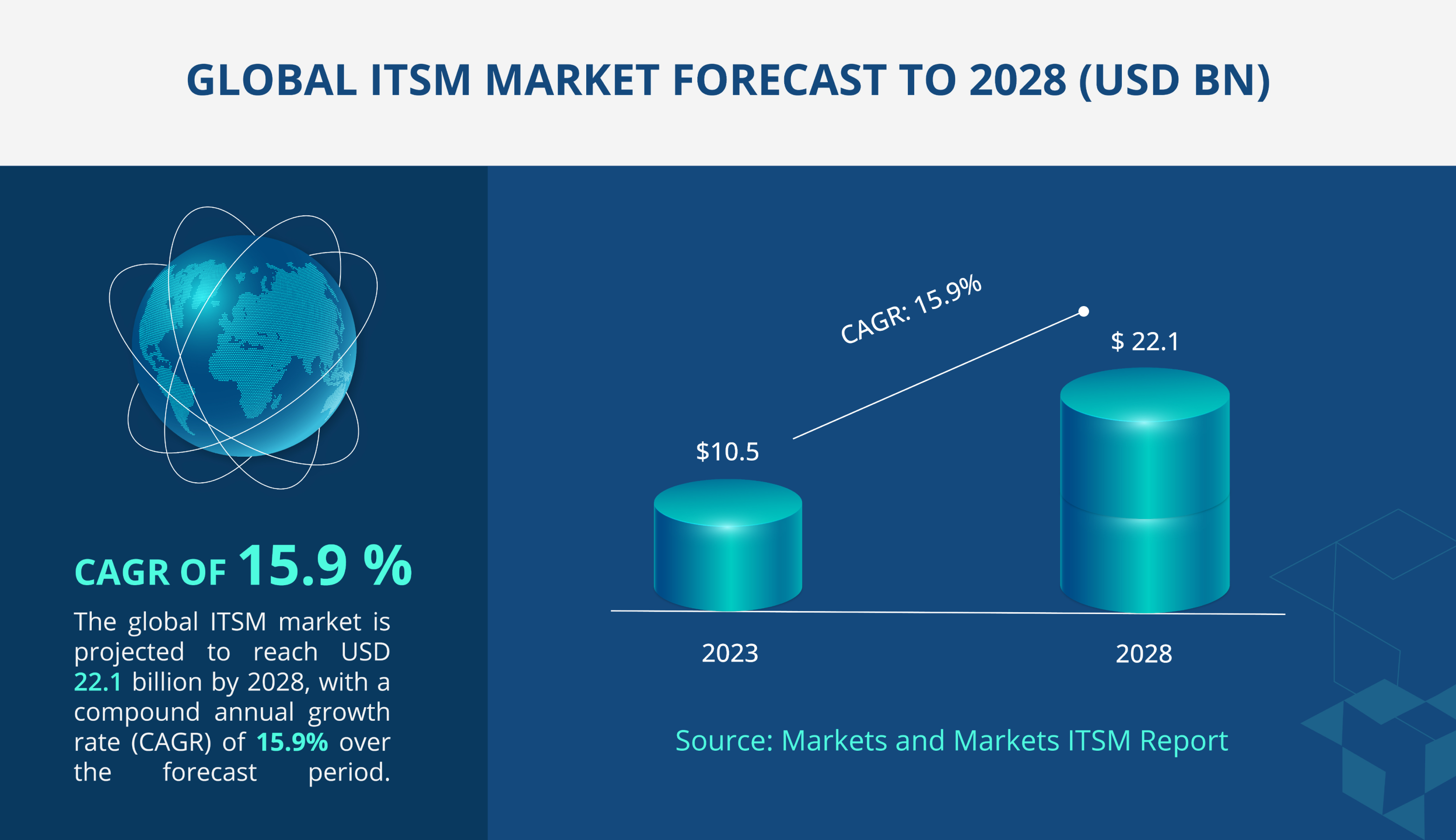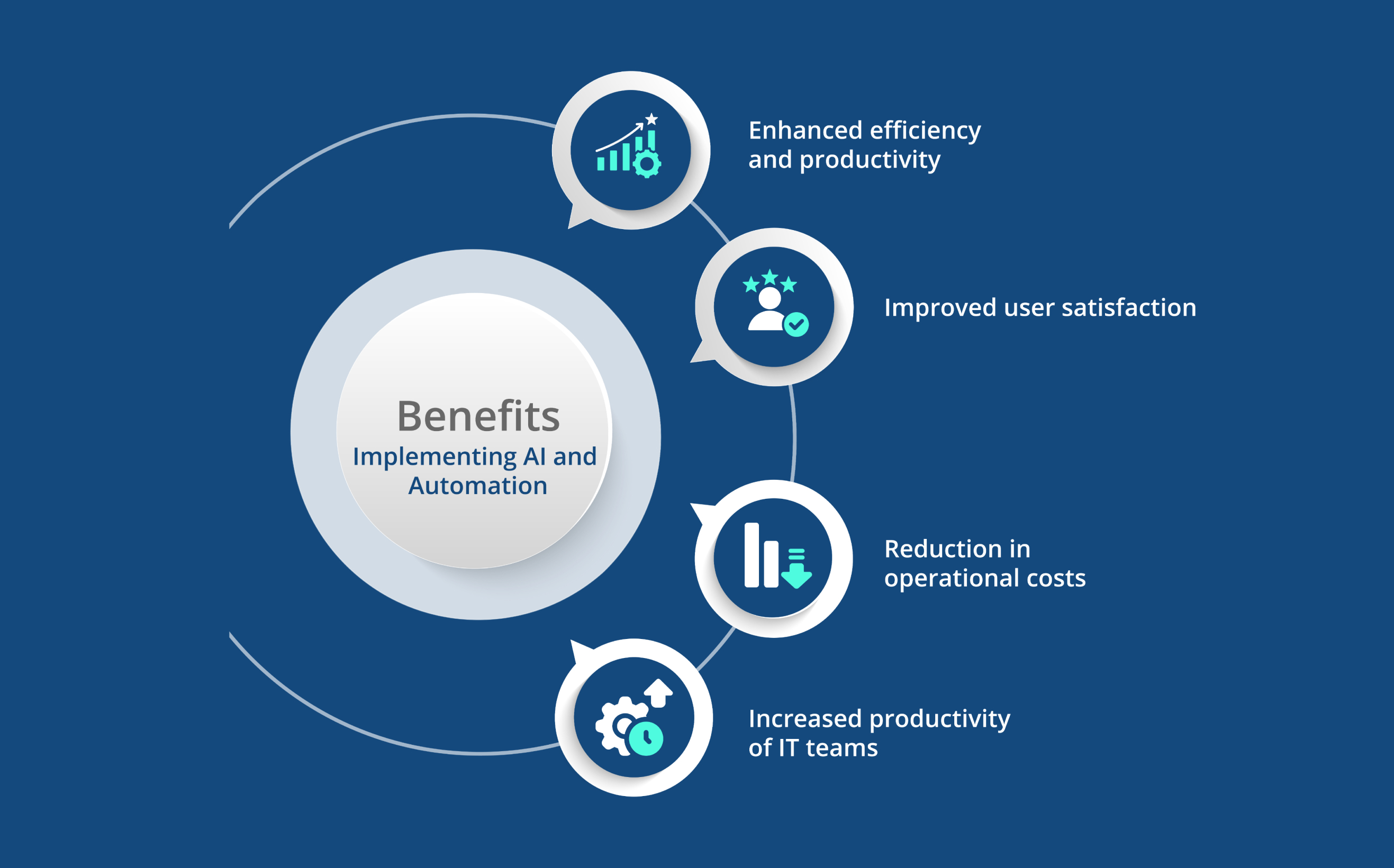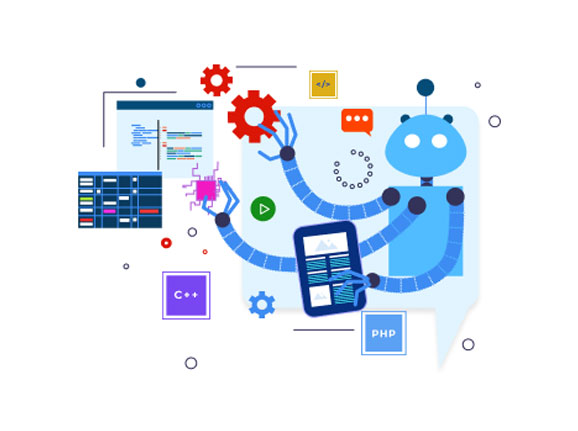Introduction

Transforming ITSM with AI and Automation in ServiceNow
Leveraging ServiceNow’s AI and Automation Features
-
Overview of Virtual Agent Capabilities:
DXC Technology reported a considerable improvement in IT efficiency, enabling their teams to focus on strategic initiatives while ensuring reliable incident manageme· ServiceNow’s Virtual Agent can be customized to handle a wide range of queries, from password resets to complex troubleshooting, providing a flexible, scalable solution for IT support.nt.
-
Utilizing Predictive Intelligence:
Explore how ServiceNow’s Predictive Intelligence module works by analyzing historical data to forecast potential IT issues before they escalate. Through machine learning and pattern recognition, this module helps organizations prioritize and resolve incidents more proactively, resulting in reduced downtime and improved service quality.
-
Implementing Automated Remediation:
The tools and workflows within ServiceNow facilitate automated remediation and incident resolution, as successfully implemented by DXC Technology.

-
Enhancing Security with AI:
ServiceNow’s automation capabilities also extend to enhancing security. Automated incident response can quickly address potential threats, reducing the
risk of security breaches and ensuring a more secure IT environment.
Benefits of Implementing AI and Automation in ServiceNow
-
Enhanced Efficiency and Productivity:
Automation accelerates IT processes, enabling teams to resolve issues faster and focus on more strategic initiatives. For instance, a construction giant in the U.S. significantly improved resource allocation and reduced errors by integrating ServiceNow’s automation capabilities, allowing their IT teams to concentrate on higher-value tasks.
-
Improved User Satisfaction:
Faster response times and more reliable service naturally lead to higher user satisfaction. Automation ensures consistent service delivery by reducing human errors and providing faster resolutions.
-
Reduction in Operational Costs:
By minimizing manual intervention and optimizing resource use, organizations can significantly reduce operational costs. Automated workflows eliminate redundancies and help teams prioritize critical issues, leading to better resource allocation.
-
Increased IT Team Productivity:
AI-driven tools handle routine tasks, freeing IT teams to focus on complex, high-value projects. As routine requests are automated, IT personnel can dedicate more time to strategic goals, driving overall business growth.

Best Practices for Successful Implementation
-
Aligning AI and Automation with Business Objectives:
Ensure that AI initiatives are closely tied to the broader goals of the business, such as improving customer satisfaction or reducing costs.
-
Ensuring High Data Quality:
Clean, well-organized data is critical for the success of AI-driven tools. Organizations should invest in data management practices to ensure that their AI systems have access to high-quality information.
-
Robust Governance:
Establish strong governance frameworks to manage AI initiatives effectively, including setting clear policies for data use and ethical considerations.
-
Addressing Change Management:
Transitioning to AI-driven ITSM requires careful change management, including employee training and clear communication about the benefits of automation.
-
Continuous Monitoring and Optimization:
Regularly review and refine AI and automation processes to ensure they remain effective and aligned with evolving business needs.
-
User Training and Adoption:
Invest in comprehensive training programs to ensure users are comfortable with new AI and automation tools. This will facilitate smoother adoption and maximize the benefits of the technology.
Conclusion



